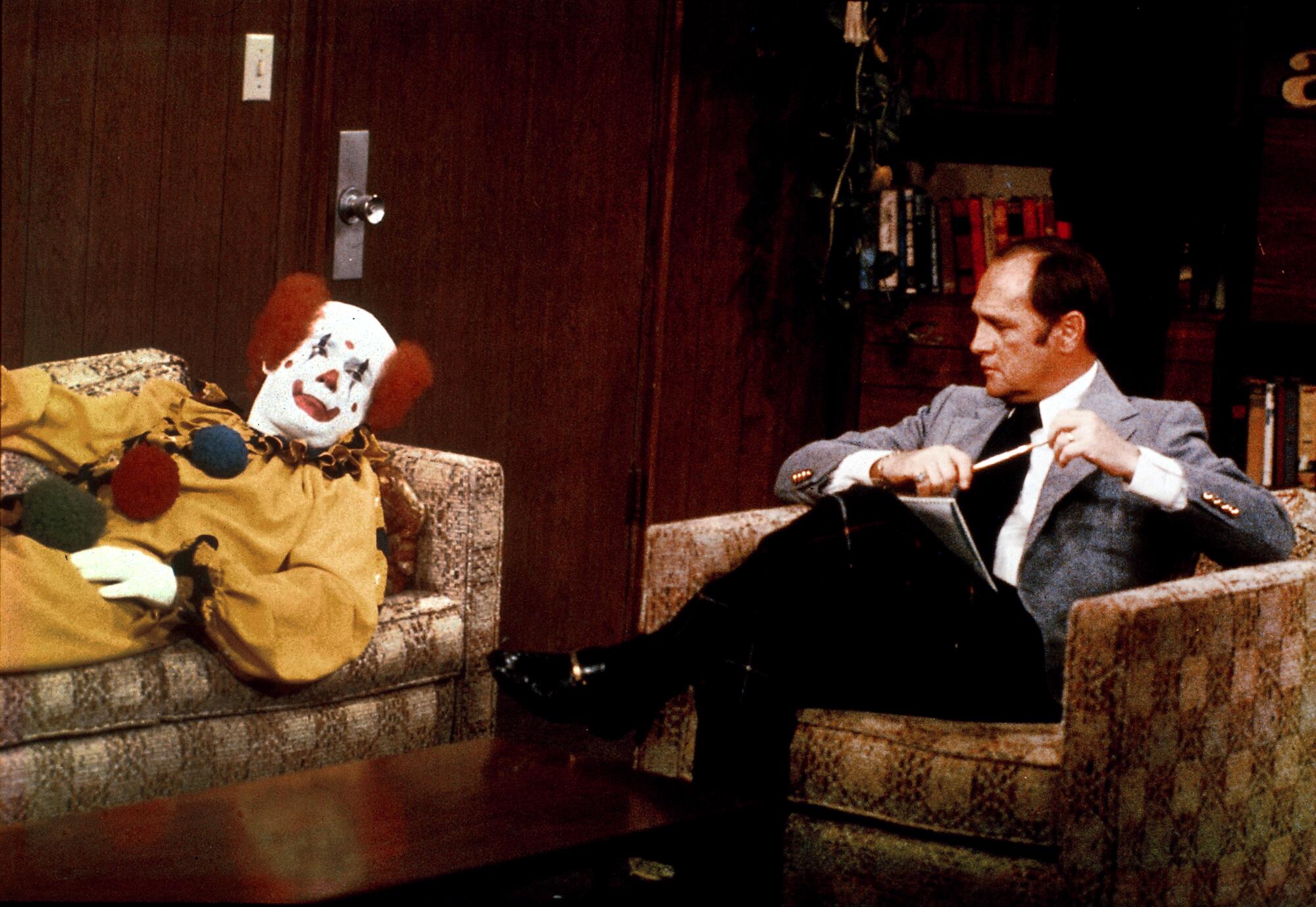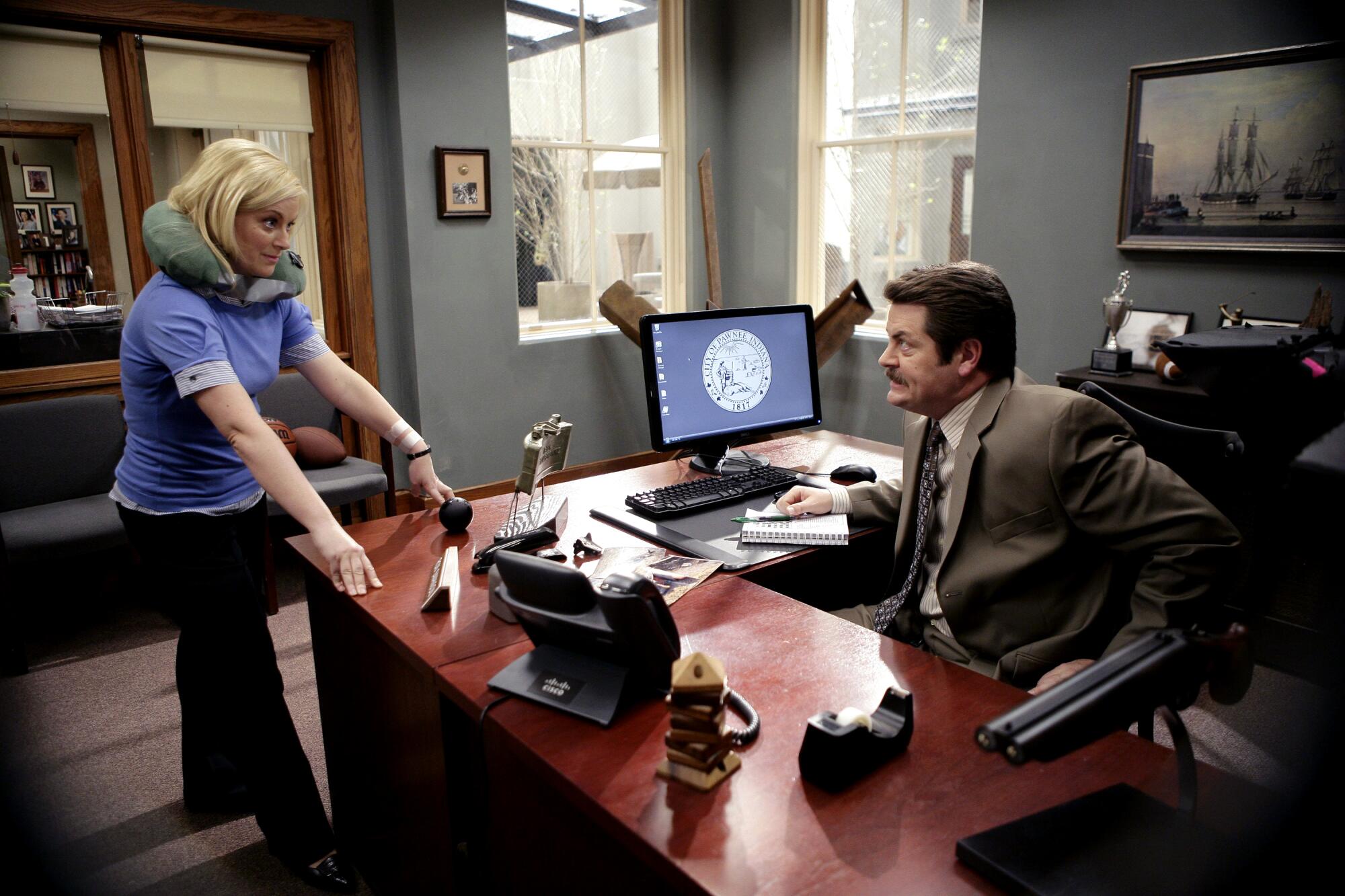
- Share via
After every Emmys, it’s de rigueur to write about shows that were “snubbed.” But let’s put it in perspective: If “The Bob Newhart Show” never won an Emmy, why should you?
Then again, why didn’t CBS’ 1970s sitcom ever win an Emmy? Or “The Wire,” for that matter? Or “Better Call Saul,” “New Girl,” “Parks and Recreation,” “My So-Called Life,” “Better Things,” “The Good Place,” “BoJack Horseman” and numerous other beloved shows?
In many cases, shows shut out at the Emmys have stood the test of time, if not the test of voters at the time. So why do some series — including still-eligible titles like “NCIS,” “It’s Always Sunny in Philadelphia” and “Yellowstone” — fall through the cracks?
It happens at the Academy Awards too, of course. “But with the Oscars, you only have one crack at it — if something else got the momentum, there’s nothing you can do,” says Jason Lynch, curator at New York’s Paley Center for Media. “For TV, theoretically, if something goes for several seasons, you get multiple cracks at it, so if a series still hasn’t received any Emmys, that discrepancy is more glaring and apparent. You can’t just say that was a crazy year.”

“Better Call Saul” is a vivid example. “It went 0 for 53 nominations,” Lynch says. “There was this drumbeat, the final season, where journalists are reminding Emmy voters, ‘This is your last chance, please’” — to no avail.
That’s another way the Emmys differ from the Oscars, notes Irving Belateche, professor of the practice of cinematic arts at USC. “With the Oscars, you can point to times when people finally get a kind of career award, even if it’s not for that role or that film. In the Emmys, they don’t do that, where they say, ‘Let’s finally give “Better Call Saul” a win.’ That, I don’t understand.”
Then again, Belateche adds, the series was up against stiff competition: “‘Game of Thrones’ four times and ‘Succession’ twice. There are so many good, popular shows you’re competing against, it’s not so cut and dried.” Similarly, “The Bob Newhart Show” faced off against “All in the Family,” “MASH” and “The Mary Tyler Moore Show.”
Still, even strong fields can’t explain away the Emmys’ treatment of “The Wire” — often listed among the greatest TV shows of all time — which not only never won in five seasons but was only nominated twice. “And ‘Parks and Recreation’ is absolutely one of the top three comedies of the 21st century,” Lynch says. “To never win a single Emmy is unfathomable.”

Genre bias is another concern, Belateche says. “That worked against some of the shows that were overlooked, like ‘Buffy the Vampire Slayer.’” Although “Buffy” did win two Creative Arts Emmys, for makeup and music composition, it was up against episodes of “The Sopranos” and “The West Wing” — the sort of prestige dramas that traditionally do well with voters — when it was nominated in 2000 for writing.
“Sometimes the format and the tone work against it,” says Belateche. “Obviously that’s true of ‘It’s Always Sunny in Philadelphia.’” Set to premiere its 17th season in July, “Sunny” has received only three nods for stunt coordination. “It’s super quirky and really popular among the younger crowd, like my students.” “BoJack Horseman’s” six surreal seasons likewise yielded just three nods.
The nomination process itself can present a challenge. “You’re only submitting one episode,” Lynch points out. “When we’re thinking about award-worthy performances, we’re thinking about entire seasons, or multiple seasons, but a voter is only watching whatever episode is submitted, which could be a great showcase for a scene or two but is not giving you all the context you need to appreciate that show. And I don’t know how to fix that. To their credit, the Television Academy has tried. Every couple of years they do change the voting procedures, and sometimes it helps and sometimes it doesn’t.”
Plus, voters may lack much time to focus on anything but their own work: “If you ask showrunners and producers what they’re watching, they say, ‘I’m so busy I don’t have time to watch anything.’ That’s a problem as well,” says Lynch.

“The other thing that we’ve seen, even more so the past couple of years, is that Emmy voters are often reflexively voting for whatever they voted for the previous years,” he adds. “Something like a ‘Modern Family’ was winning every year. And now we’re getting a lot of sweeps, which became most apparent in 2020 when ‘Schitt’s Creek’ ran the board. It’s harder for other shows to get in there when you have only a small handful of shows hoovering up all of the awards.” And if shows don’t score wins early in their run, it’s all the harder for them to break through later.
Lynch would love to see a way for TV Academy members to vote for shows once they’re clearly seen as part of the pantheon. “It’s only time that’s going to give you that sense of a show’s legacy. But this is a TV business; nobody’s going to watch an Emmy show in 2025 that’s giving away trophies to shows from 2015.”
Then again, the Emmys’ Governors Award has occasionally been given to shows, and the entire “Star Trek” franchise won a Governors Award in 2018 in recognition of its lasting impact, finally celebrating that first Emmy-less series (along with six others). There may be hope for “The Wire” yet.
More to Read
Sign up for The Envelope
Get exclusive awards season news, in-depth interviews and columnist Glenn Whipp’s must-read analysis straight to your inbox.
You may occasionally receive promotional content from the Los Angeles Times.








